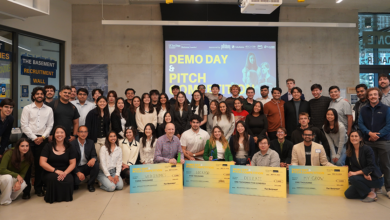Why These Successful Entrepreneurs Are Opting Out Of Using AI

Why these entrepreneurs are opting out of using AI
Founders are using AI in their businesses, and the trend is only growing. More than half of businesses plan to incorporate AI into their processes in 2024. They’re learning how to prompt, testing out the tools and hiring consultants to give them a hand. But even when over 77% of companies are either currently using or exploring the use of AI, some aren’t sure it’s for them.
Some professionals are opting out of AI completely, for a variety of reasons. I asked successful founders and business leaders to tell me why they didn’t want to use AI in their work, and their answers might surprise you.
Meet the founders and business leaders who won’t use AI tools in their business
Lack of quality
Lianna Patch, founder of Punchline Copy, describes herself as “a conversion copywriter specializing in funny copy,” and said “there’s still—for now—a fairly wide moat between what I can produce and what AI tools can produce.” She doesn’t rate the AI tool ChatGPT for jokes, saying “AI jokes are not exactly jokes. They’re sentences in the shape of a joke.” Not a laughing matter.
Mina Lisanin is founder of New York-based ML Interiors, and has stopped using AI tools completely because she didn’t think the results were any good. “Midjourney seemed very cool at first with the thought of AI created imagery, but most of the time the images were not realistic and on occasion, you would see an error like a 5th leg on a chair,” she explained. Clearly an issue for an interior design firm!
Business consultant Samantha Kelly doesn’t like the style of AI-generated content. “I‘m amazed at the amount of people who use it to write articles and posts on LinkedIn!” she said, believing it’s a false economy. “You can’t beat human warmth, empathy, knowledge and enthusiasm.” Not for now, at least.
Ethical concerns
These founders also question the quality of AI-generated content, but their concerns have an ethical edge as well. Professional writer and editor Rebecca Benison believes, “people are paying for my work and experience, not that of a learning model,” and doesn’t use AI personally or professionally. “Sometimes I’m asked to edit AI content, and it really does require human insight and fact-checking,” she explained.
Another professional writer, Ross Jenkins of DigitalME, only uses AI “if the client specifically asks to use it.” For him, this is about integrity. Jenkins wants “the client to know the work’s done by a human,” who they have “used and worked with before,” so they have trust in its quality.
Copyright issues
“AI is using other people’s content and delivering it back,” said Marketing Optimist agency founder Richard Michie. “Not using AI is our competitive advantage,” especially when “there are so many people in the marketing industry who are using it to be quicker and cheaper without any reference to creativity or quality.” Originality matters for some marketing pros.
Professional writer Kristen Wiltse, of KW Communications, also has “serious plagiarism concerns,” and does not use any AI writing tools for her business “because the language is so generic and sanitized.”
Bluebell Marketing founder and ex-Google employee Barney Durrant knows that large language models trained on billions of words can generate exceptionally dull ideas. His suggestion is to still use AI, but “get ChatGPT to create the ad campaign strategy and then assume it’s the most average, bland option and then choose to do the opposite.” This is how you truly reach customers.
AI is not for everyone: these founders say no
Contrary to how it might feel, not everyone is on the AI bandwagon. Not every single entrepreneur is training ChatGPT to write like them, using AI tools to make more impact in less time, and monetize their expertise. Those opting out are citing reasons including lack of quality, ethical concerns and privacy issues.
Will the demand for cheaper, faster results outgrow the demand for strictly human work? These founders are backing themselves (and humanity) to stay ahead of the ever-advancing army of AI tools.



